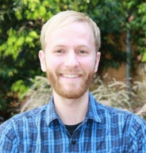DNA reveals the past and future of coral reefs
New DNA techniques are being used to understand how coral reacted to the end of the last ice age in order to better predict how they will cope with current changes to the climate. James Cook Univer

From 2005 to 2022, the main node of the ARC Centre of Excellence for Coral Reef Studies was headquartered at James Cook University in Townsville, Queensland (Australia)








Abstract: Sponges underpin the productivity of coral reefs, yet few of their microbial symbionts have been functionally characterized. Here we present an analysis of ~1200 metagenome-assembled genomes (MAGs) spanning seven sponge species and 25 microbial phyla. Addition of these MAGs to genome trees containing all sponge symbionts increased phylogenetic diversity by 44 and 75% for Bacteria and Archaea, respectively. Compared to MAGs derived from reef seawater, sponge-associated MAGs were enriched in glycosyl hydrolases targeting components of sponge tissue, coral mucus, and macroalgae, revealing a critical role for sponge symbionts in cycling reef organic matter. Genes for utilization of sponge glycans, like fibronectins and cadherins, were co-located in symbiont lineages capable of attaching to host surface proteins. Further, genes encoding CRISPR and restriction modification systems used in defence against mobile genetic elements were also enriched in sponge symbionts, along with multiple eukaryote-like gene motifs thought to be involved in maintaining host association. Finally, we provide evidence that many of these sponge-enriched genes are laterally transferred between microbial taxa, suggesting they confer a selective advantage within the sponge niche and therefore play a critical role in host ecology and evolution.
Biography: Steven Robbins is a native Ohioan who moved to Brisbane in 2011 to obtain his PhD at UQ. There, he investigated the metabolic pathways used to generate coal seam gas (CSG) and the effects of hydrofracture stimulation on CSG microbial communities. His postdoctoral work with the Great Barrier Reef Foundation’s ReFuGe2020 Consortium involved the integration of genomic data for several species of coral, as well as their Symbiodiniaceae and prokaryotic communities in order to clarify their individual roles within the coral holobiont. In his current role with Nicole Webster at the Australian Centre for Ecogenomics, he leverages large datasets of microbial genomes from marine sponges to identify the mechanisms underpinning sponge-microbe symbiosis.
New DNA techniques are being used to understand how coral reacted to the end of the last ice age in order to better predict how they will cope with current changes to the climate. James Cook Univer
A new study on the effects of climate change in five tropical countries has found fisheries are in more trouble than agriculture, and poor people are in the most danger. Distinguished Profess
James Cook University researchers have found brightly coloured fish are becoming increasingly rare as coral declines, with the phenomenon likely to get worse in the future. Christopher Hemingson, a
Researchers working with stakeholders in the Great Barrier Reef region have come up with ideas on how groups responsible for looking after the reef can operate more effectively when the next bleaching
Abstract: As marine species adapt to climate change, their heat tolerance will likely be under strong selection. Individual variation in heat tolerance and its heritability underpin the potential fo
Abstract: The Reef Ecology Lab in KAUST’s Red Sea Research Center explores many aspects of movement ecology of marine organisms, ranging from adult migrations to intergenerational larval dispersal
Abstract: Macroalgal meadows are a prominent, yet often maligned component of the tropical seascape. Our work at Ningaloo reef in WA demonstrate that canopy forming macroalgae provide habitat for ad
Abstract: Sharks are generally perceived as strong and fearsome animals. With fossils dating back at least 420 million years, sharks are not only majestic top predators but they also outlived dinosa
Abstract: Connectivity plays a vital role in many ecosystems through its effects on fundamental ecological and evolutionary processes. Its consequences for populations and metapopulations have been
Abstract: Evolution of many eukaryotic organisms is affected by interactions with microbes. Microbial symbioses can ultimately reflect host’s diet, habitat range, and even body shape. However, how
Abstract: The past few years have seen unprecedented coral bleaching and mortality on the Great Barrier Reef (GBR) but the consequences of this on biodiversity are not yet known. This talk will expl